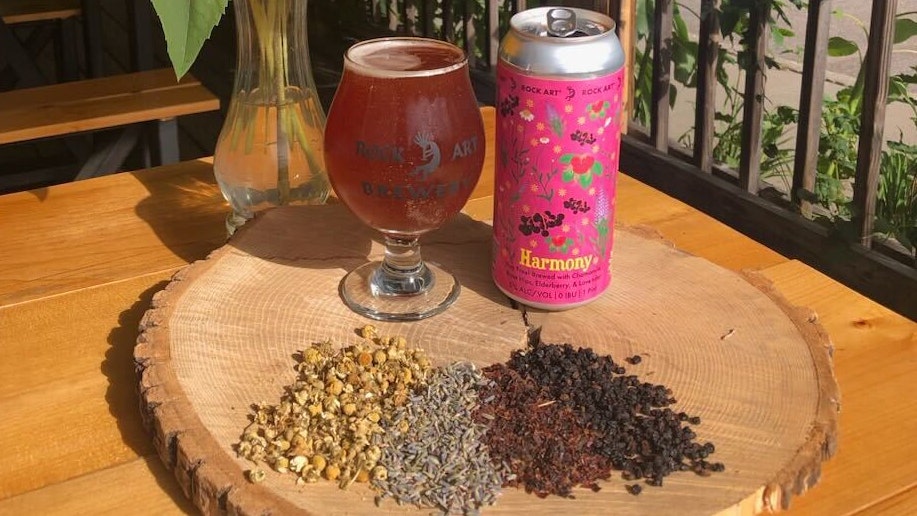Beermaker Craig Neuzil of Pivo Brewery in Calmar, Iowa, created Decorah Nordic Gruit, a unique herbal beer that is the antithesis of the popular India pale ales on the market. Using black walnut, bay leaf, bog myrtle, caraway, juniper, and rosemary, Neuzil’s gruit has earned high praise and multiple gold medals at prestigious beer competitions. Gruit is a traditional beer style that predates the use of hops, and it is a blend of herbs used to flavor beer in Renaissance times and earlier. Rock Art Brewery in Vermont also brews gruit, with their signature Harmony beer featuring chamomile, elderberry, lavender, and rose hip in place of hops.
In the 16th century, herbal beers such as gruit fell out of favor, with hops becoming the dominant flavoring agent in beer due to the Bavarian Reinheitsgebot beer purity law of 1516. However, the resurgence of interest in gruit among American brewers and beer drinkers can be attributed to the publication of “Sacred and Herbal Healing Beers” by Stephen Harrod Buhner in 1998. The book highlighted the historical use of herbs in brewing and their potential medicinal, aphrodisiacal, and psychotropic qualities. GruitAle.com notes that herbs have been incorrectly considered a substitute for hops when in reality, hops are a substitute for the traditional gruit blend of herbs.
The decline of gruit in favor of hops may have been influenced by the belief that the herbs used in gruit had aphrodisiac qualities, leading to promiscuity that conflicted with church authorities. The use of hops as a replacement for other herbs may have also contributed to Brewer’s Droop, a phenomenon where hops act as an anaphrodisiac for men. Despite this historical shift, breweries like Pivo Brewery and Rock Art Brewery have embraced gruit as a unique and flavorful alternative to traditional hop-forward beers. Harmony, Rock Art’s gruit beer, has a tea-like quality and is compared to apple pie by some drinkers.
The Vikings were said to have consumed gruit with psychedelic herbs that fueled their intensity in battle, contributing to the beer style’s reputation. Gruit, brewed without hops, offers a different flavor profile and experience for beer enthusiasts looking to explore ancient brewing techniques. The availability of hard-to-find beer styles like gruit in states like Vermont has contributed to the state’s reputation as a leader in American beer making. While hops have become the standard for modern beer brewing, the resurgence of interest in gruit reflects a desire for diverse and unique flavors in the craft beer industry.
In conclusion, the rise of herbal beers like gruit offers a glimpse into ancient brewing traditions that predate the use of hops in beer. Through the work of brewers like Craig Neuzil and Rock Art Brewery, gruit has experienced a resurgence in popularity among beer enthusiasts seeking new and unique flavor experiences. By highlighting the historical significance of herbal brewing and the potential medicinal qualities of herbs in beer, gruit represents a nod to the past while offering a fresh perspective on traditional beer styles. As the craft beer industry continues to innovate and evolve, gruit serves as a reminder of the rich and diverse history of brewing techniques that have shaped the world of beer as we know it today.


